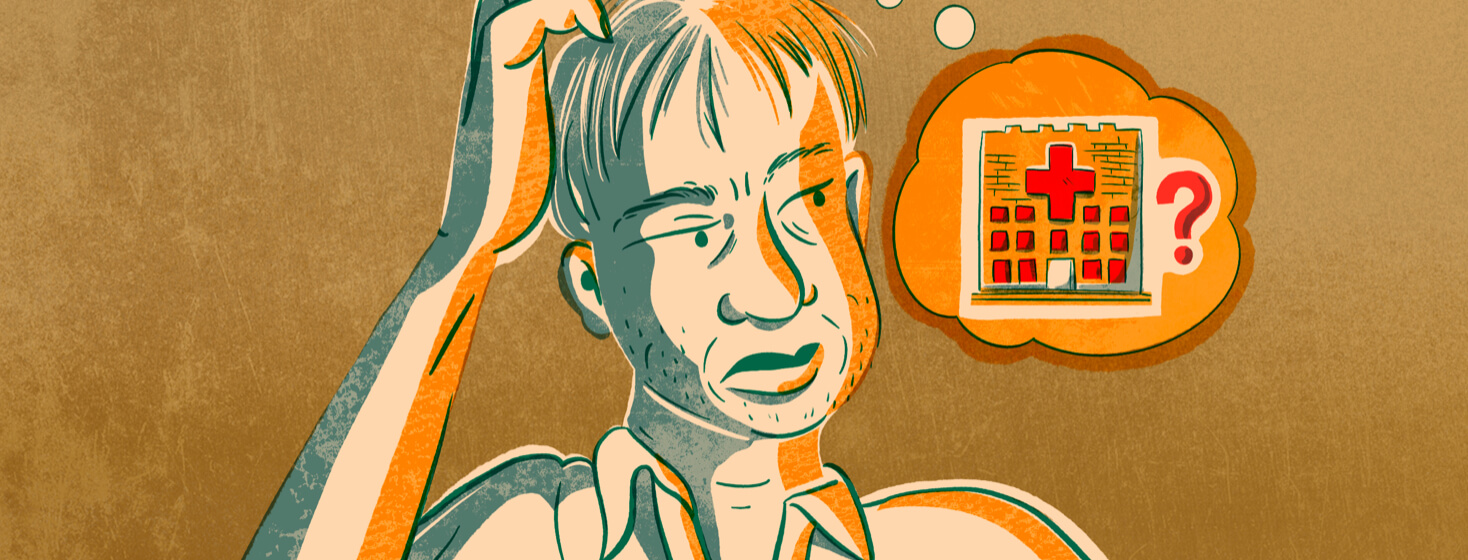Understanding Emergency Room Care
I thought going to the emergency room for a fungal infection in my lungs would be a very different experience than going for a migraine attack. After all, I had difficulty breathing and chest pain, symptoms that tend to get more respect than pain does.
The experiences were surprisingly similar. They ran some tests and ruled out that I had anything that was in immediate danger of killing me. I got a breathing treatment during my second ER visit to provide symptomatic relief. But, once they determined they didn’t need to intervene to keep me from dying, they told me to follow up with primary care or a specialist.
What is the purpose of emergency rooms?
It made me realize that I hadn’t really understood the intended purpose of emergency rooms. They are to keep people from dying. That is their primary purpose and the focus of their staff. If you go to an emergency room for an illness that isn’t going to quickly and directly lead to your death, they can’t do much to help.
Referrals for non-life-threatening issues
For example, I overheard another patient say to her ER doctor, “But I haven’t been able to walk for a week. What’s going on? What am I supposed to do?” And the doctor’s response, while compassionate, was along the lines of, “I don’t know, but I’ve referred you to a handful of specialists you can follow up with to get to the bottom of it.”
ER treatment goes beyond migraine stigma
I’m not saying people with migraine should never go to the emergency room. But it was helpful for me to realize that the reasons people with migraine get insufficient help in the ER go beyond stigma and the belief that we’re drug seekers (which are definitely problems we encounter). Part of the problem is that the ER just isn’t designed to help people with problems like migraine.
Where are we supposed to go?
There’s obviously a huge gap here. We can’t time our migraine attacks to only become severe enough to need immediate medical attention during normal office hours. And primary care, which is usually easier to access than specialty care, is often unable to treat severe migraine exacerbations. Urgent care, which was intended to be the stopgap in this case, can sometimes help with migraine, but not always.
So, what are we supposed to do?
My advice
My best advice is to create a plan when you aren’t in a migraine crisis, so you have something to follow when you’re desperate for relief. Work with your primary care provider and/or headache provider to identify medications or treatments you can use at home if your primary treatments don’t break the attack. And create a backup plan if you still don’t get relief. Ask your provider if there’s an infusion clinic you can go to in the case of a migraine emergency — that’s often the best way to break an attack — and, if so, how to access that care.
Then come up with a plan for if you do have to seek emergency care. Ask your primary and/or headache providers what medications they’d recommend in that instance. And ask them to write a letter that you can take to urgent care or the emergency room that outlines what treatment you’ve likely tried (based on your plan) and what treatments work for you in an emergency setting.
What about urgent care?
While the emergency room has access to more medications than an urgent care, urgent care may be able to help you more quickly and in a quieter, calmer setting than the ER. Like with all this planning, it’s best to contact them before you’re in a migraine crisis. You can call them ahead of time and ask how they treat migraine. You can even tell them you have a letter from your doctor and ask if they’d be able to do the protocol your doctor recommends. (If the plan contains controlled substances, you might not be able to get this information over the phone.)
It's not us
It may seem bleak to say that the emergency room is not designed to treat migraine, but I actually found it helpful. Yes, stigma prevents good migraine care, and yes, we’re often treated like drug seekers. But, on top of that, the providers in the emergency room aren’t trained or equipped to help us. It’s not because they don’t care, but because their work focuses on immediately life-threatening health concerns.

Join the conversation